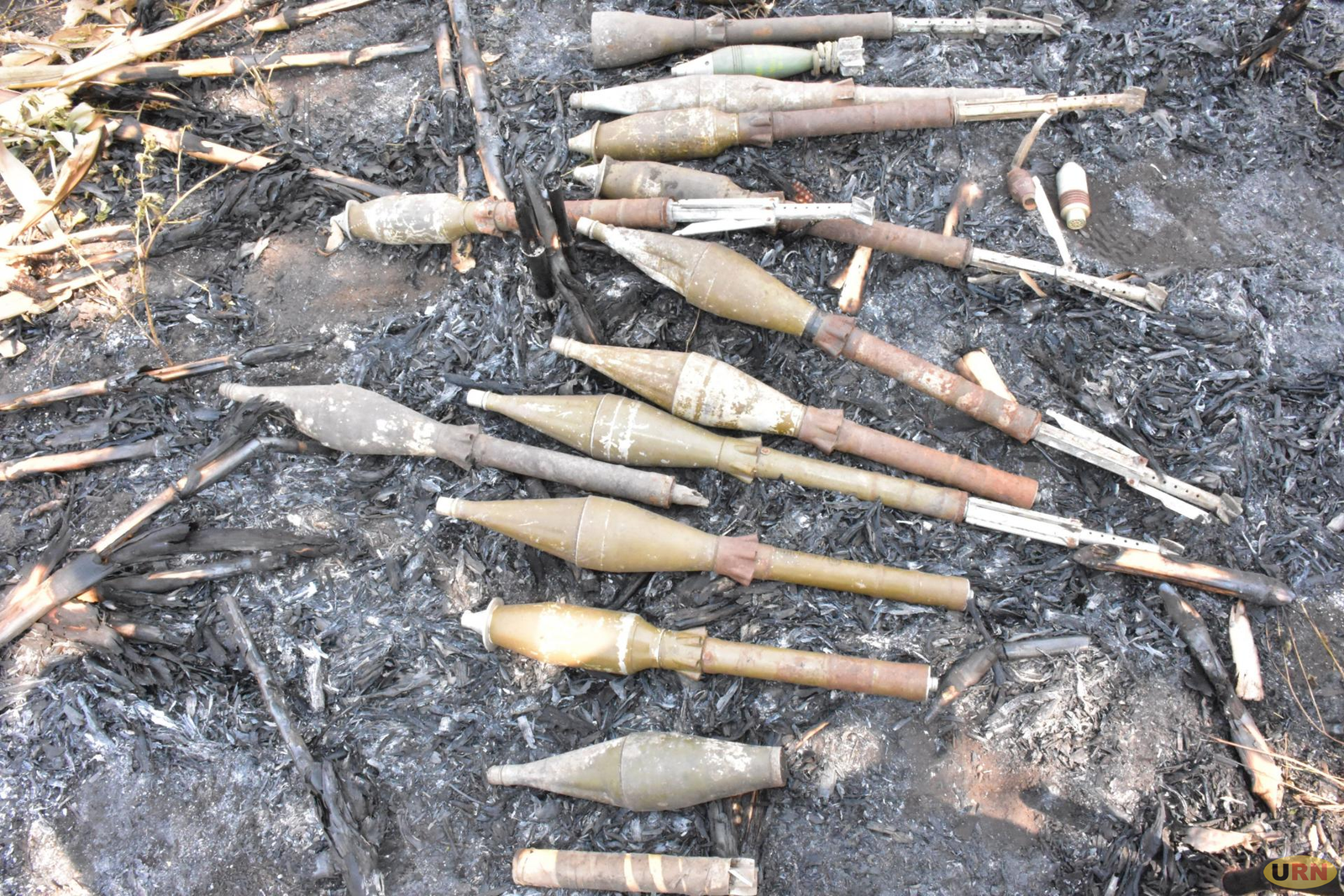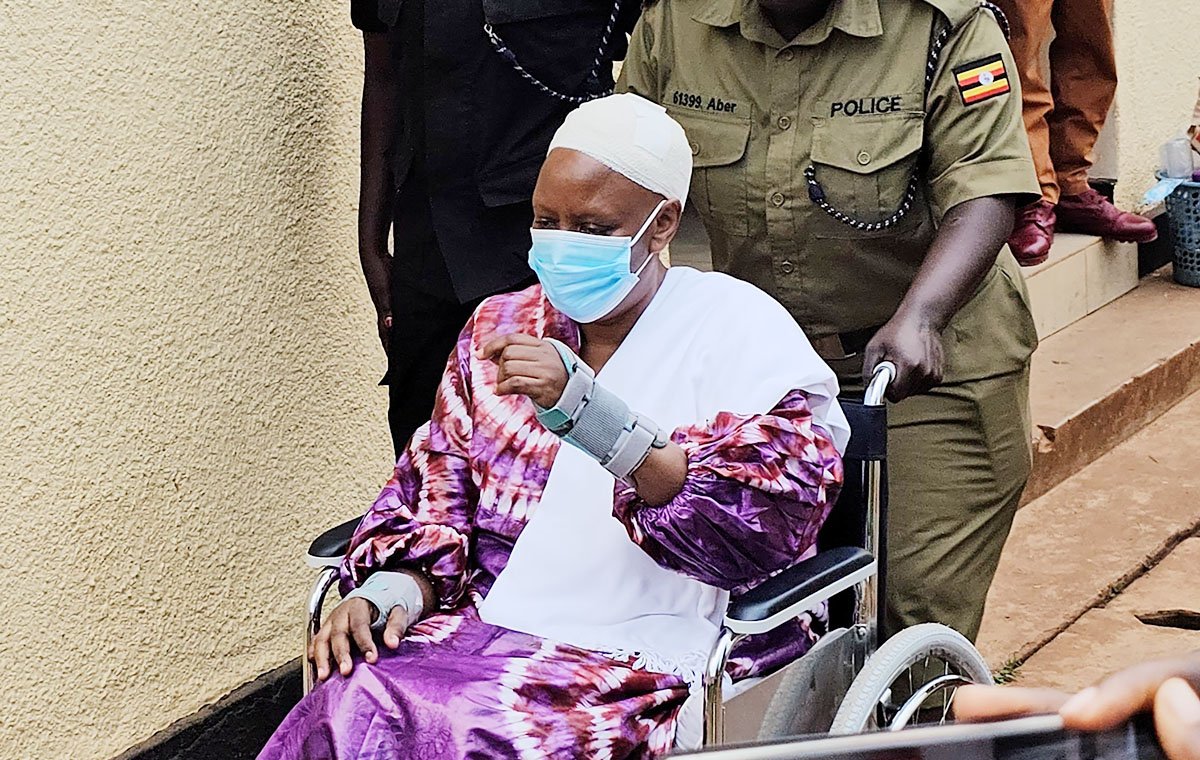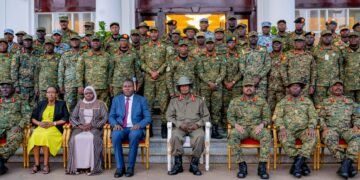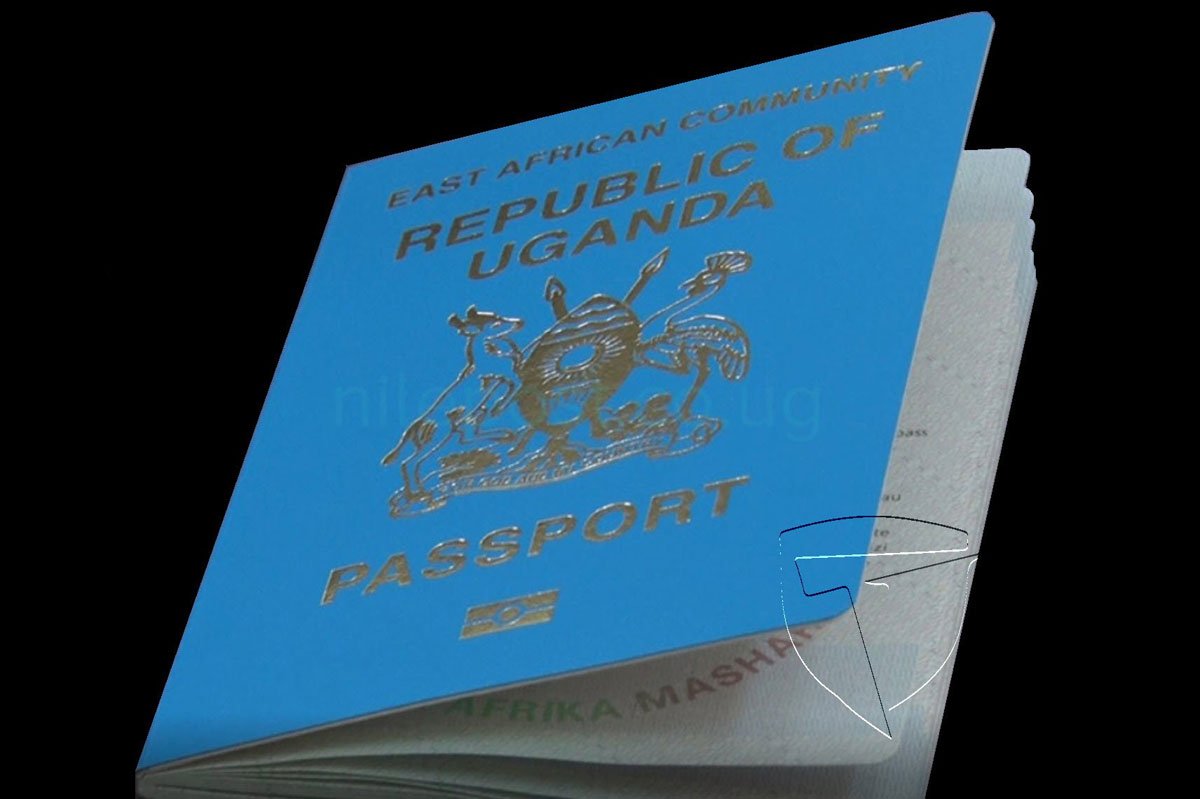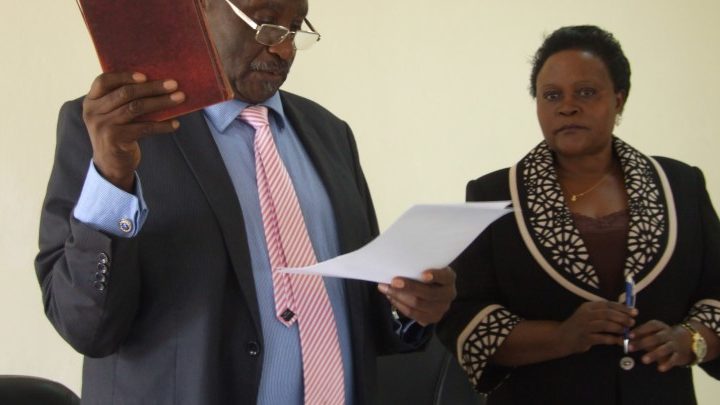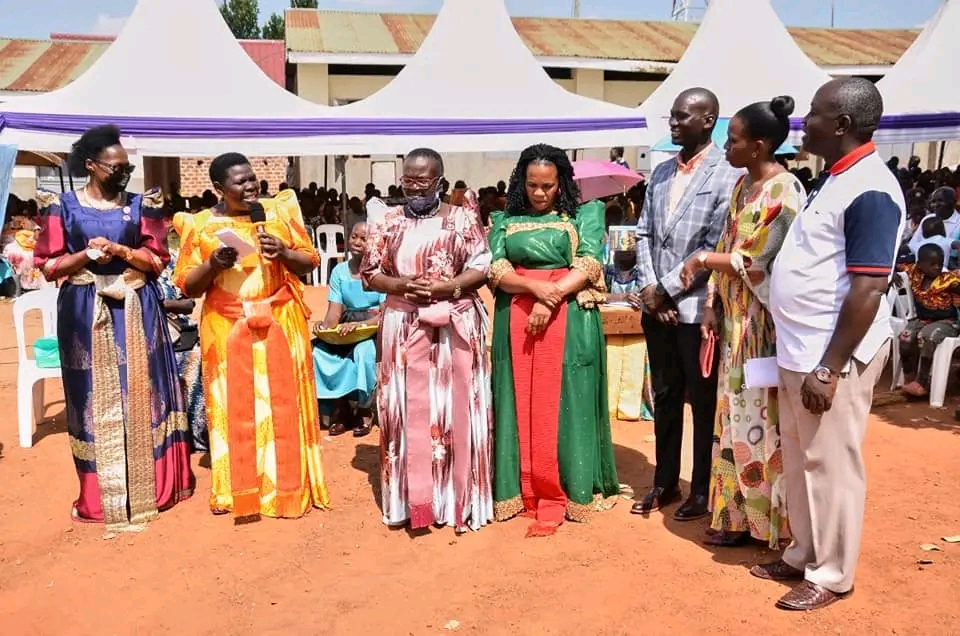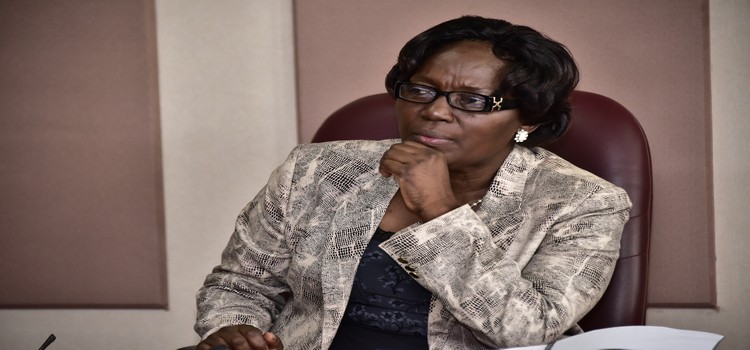18 different explosives were successfully destroyed in Mabenga and Rutshuru by Uganda’s peacekeeping forces in the war-torn North Kivu region of the Eastern Democratic Republic of Congo (DRC).
The Field Engineering Unit of Ugandan troops’ Explosive Ordnance Disposal (EOD) Team handled the unexploded and abandoned ordinances, which included rocket-propelled grenade (RPG) bombs, main battle tank bombs, anti-tank bombs, 82-millimetre recoilless bombs, bomb fuses, hand grenades, and live ammunition from assault rifle weapons, expertly.
When the March 23 Movement (M23) rebels and soldiers from the Armed Forces of the Democratic Republic of the Congo (FARDC) engaged in fierce combat in March 2022, explosives were left behind.
The explosives were found in a variety of plantations, fields, and shrubs within the Mabenga settlements, according to Captain Hassan Ahmed Kato, a representative for the Ugandan army contingent.
The EOD Field Engineering Commander, Major Julius Aine, expressed appreciation for the locals’ participation in providing crucial information about the locations of the abandoned explosives.
He also emphasized the dangerous nature of the devices and the requirement for appropriate safety precautions, urging the locals to be watchful and cautious while dealing with unidentified items.
Despite the fact that the area has returned to peace and calm because of the presence of Ugandan troops, Lt. Col. Samuel Mawanda Lubega, the Commanding Officer of the 9th battalion in Mabenga, noted that civilians working in their gardens to grow food still have to contend with unexploded bombs left over from the conflict.
Some of these discovered bombs are still operational, and if tampered with, they pose a serious threat to both people and animals.
With crops including maize, soy, beans, cassava, and sorghum, Mabenga, a crucial food-producing area in North Kivu, plays a crucial role in maintaining the population.
Unexploded bombs have been known to explode in the area, causing casualties and injuries prior to the intervention of Ugandan soldiers.
In accordance with the decisions made at the summit of the chiefs of state of the East African Community (EAC), Ugandan troops were stationed in the Rutshuru area, including Bunagana, Kiwanja, Mabenga, and Rutshuru town.
They are tasked with taking back positions that the M23 rebels had held before they defeated the FARDC troops and creating a buffer zone to stop additional violence between the M23 rebels and FARDC personnel.
Additionally stationed in the Masisi and Nyiragongo areas under the same peacekeeping mission are troops from Kenya, Burundi, and South Sudan.
In March 2022, the M23 commenced hostilities against the DR Congo government, focusing particularly on the North Kivu area.
The M23 rebels assert that they are fighting against corruption, xenophobia, and prejudice in the DRC, despite the fact that the DR Congo government accuses Rwanda of supporting M23. Both Rwanda and M23 vehemently deny any involvement.


